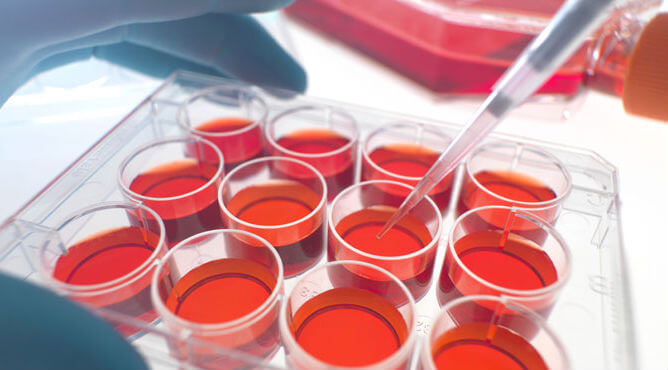What are fetal stem cells?
Stem cells are the precursors of all the cells and tissues of our body. The unique feature of these cells is their ability to maintain their number by dividing and differentiating into cells of different types.
With age, the number of stem cells in the human body decreases. Depletion of stem cells due to aging, serious diseases or bad habits (smoking and drinking alcohol) reduces the body’s ability to self-renew. Due to such changes in the body, normal functioning of certain organs may be impaired.
UCTClinic offers treatment with fetal stem cells (FSC) at the age of 5-12 weeks as these cells have the highest ability to reproduce among presently known human stem cells.

The main differences of fetal stem cells used in our clinic from other types of stem cells are the following:
1. Fetal stem cells include the mechanism of engraftment in a foreign body. This mechanism is not present in the final form in any other type of stem cells.
2. Fetal stem cells retain the ability to be transformed in the process of division into all 220 types of cells of an adult organism, which is not achievable for all types of differentiated cells of an adult body.
3. Fetal stem cells have the highest proliferative potential (ability to reproduce). Consequently, they can provide the maximum progeny of the body’s own stem cells.
4. After the administration of fetal stem cells, the immunological tolerance develops, organism actually perceives the introduced stem cells as its own and does not begin an immunological attack, and there is no need to take measures for suppressing the response of the patient’s immune system.
5. Fetal stem cells cannot contain genetic information about the patient’s genetic disease. Our long-term experience shows that they can actively and effectively treat a wide range of diseases of a genetic nature. In case of genetic diseases, adult stem cells already have a genetic defect that has led to the onset of the disease and are actually not effective for the treatment.
6. Ability to migrate to the problem area, which allows to administrate them intravenously.
7. Fetal stem cells from 5 to 12 weeks of gestation have lost their ability to uncontrolled division, underwent primary differentiation and do not carry any oncogenic threat.
All this proves that fetal stem cells have the maximum regenerative potential and provide the best treatment results in a wide range of diseases and conditions.